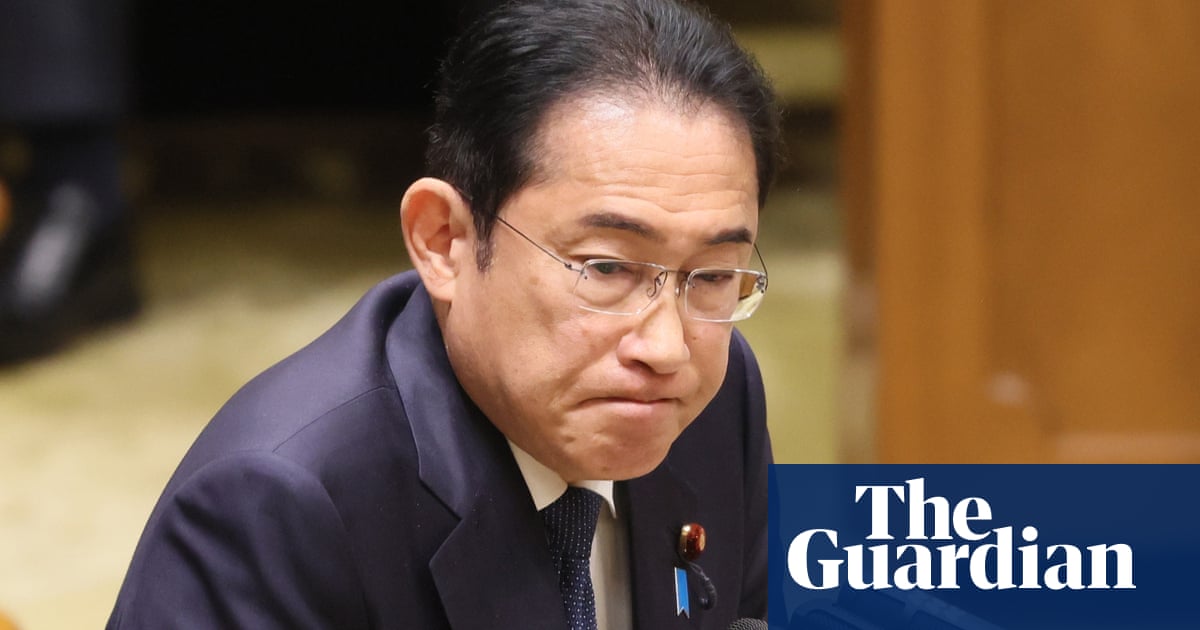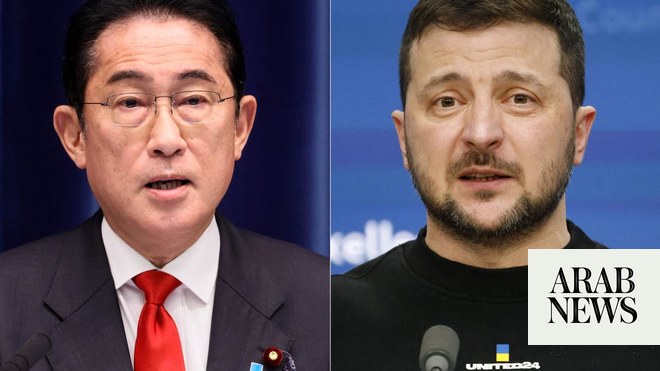
In the past fortnight Fumio Kishida has been mentioned as a possible recipient of the Nobel peace prize and praised for a speech to congress in which he urged the US not to retreat into isolation.
But since his return to Tokyo after a successful summit with Joe Biden, Japan’s prime minister has been buffeted by domestic political headwinds that this weekend could spell the beginning of the end of his administration.
Kishida, who came to office in late 2021 promising a “new capitalism”, a more robust Japan on the international stage and solutions to the country’s demographic crisis, faces the toughest test of his premiership when voters go to the polls in three byelections on Sunday.
His Liberal Democratic party (LDP) was unable to find candidates for the votes in two constituencies, where the LDP incumbents were tainted by scandal - and is pinning its hopes on the Shimane 1st district.
The rural constituency on the coast of the Sea of Japan is considered a conservative stronghold, but it is a measure of the size of the problems facing Kishida that speculation is mounting that his party could be unseated.
Despite wooing his American audience – a feat that earned him a bump in his approval ratings – Kishida has little else to endear himself or his party to Japanese voters.
The yen is in freefall against the dollar, the cost-of-living crisis shows little sign of easing, and there are questions over how to fund policies to address Japan’s low birth rate and its biggest military build-up since the end of the war.
But the longest shadow is cast by a funding scandal, first reported last year, that has become a focal point for public anger amid growing doubts about Kishida’s ability to lead the LDP to victory in the next lower house elections.
While that vote is not due for well over a year, the scandal, in which 85 LDP lawmakers were found to have siphoned unreported profits from the sale of tickets to party gatherings into slush funds, has denied Kishida any room for manoeuvre.
Instead, defeat in Shimane, added to certain victory for non-LDP candidates in Sunday’s other byelections, could trigger an early challenge to his leadership when the party holds presidential elections in September, with the winner automatically made prime minister.
Victory in the byelection, on the other hand, could give Kishida enough momentum to call a “put up or shut up” snap election this summer.
But days before the Shimane vote, Japanese media reported that the LDP candidate, a former finance ministry bureaucrat, was trailing his rival from the main opposition Constitutional Democratic party.
That, say analysts, reflects a wider dissatisfaction with Kishida’s administration, whose approval ratings have plunged to record lows well under 30% - the point at which Japanese governments are said to be entering choppy electoral waters.
“If the LDP loses Shimane … Kishida is likely to come under pressure from within his party in a way that he has not yet experienced since winning the party leadership race [in September 2021],” said James Brady, vice president of the Teneo advisory firm.
“The party’s response to the slush fund issue has been consistently unconvincing to the public, and there is little reason to think that the planned reforms would change that trend.”
Attempts to repair the damage inflicted by the funding scandal, and the promise of reform to political funding laws, have also failed to defuse criticism in the media, with one newspaper describing Kishida’s response as “utterly unacceptable”.
While 39 LDP lawmakers were punished, Kishida escaped sanction despite evidence that his own faction had also under-reported ticket sales – apparent double standards that risk sparking a factional power struggle that would leave him bloodied as he attempts to retain his party’s endorsement as LDP president this autumn.
Kishida may have taken comfort from the suggestion last week by the US deputy secretary of state Kurt Campbell that he should be the joint recipient, with South Korean president Yoon Suk Yeol, of the Nobel peace prize for their attempts to address their countries’ bitter historical legacy and show a united front against nuclear-armed North Korea.
But even as he implored the US to overcome “self-doubt” over its global leadership – with a cautious eye on the possible return of Donald Trump – his focus was on the storm that awaited him in Japan.
Greeted by cheers as only the second Japanese leader to address a joint session of congress – the first was Shinzo Abe – Kishida could not resist a gentle dig at his parliamentary colleagues back home: “I never get such nice applause from the Japanese Diet [Japan’s version of congress].”












